UK Syria fighters: Imam urges parents to take responsibility
- Published
Sheikh Zane Abdo says parents must be responsible for their children's education
A Muslim leader has told parents they must be responsible for their children's education after two Cardiff men tried to recruit jihadists to fight in Syria and Iraq.
Sheikh Zane Abdo, imam at Cardiff's South Wales Islamic Centre, said children should be "connecting with the prophets" - not using social media.
Police say they are doing everything to stop radicalisation in south Wales.
Politicians and religious leaders say they are tackling extremism together.
A video, thought to be filmed in Syria, showing Nasser Muthana and Reyaad Khan, both 20 and from Cardiff, along with a man from Aberdeen, appeared online last week with them urging others to join a jihadist fight in Syria.
The men are believed to be among 500 Britons fighting in Syria for the militant group Isis (Islamic State in Iraq and the Levant).
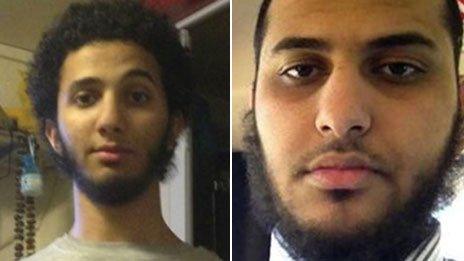
Aseel Muthana (left) and older brother Nasser (right) are believed to be in Syria
Imams at mosques around the UK are using Friday's sermon to discourage men from fighting in Syria.
Speaking at prayers, Sheikh Zane Abdo said if people want to help those in Syria and Iraq, they could get a Saturday job, earn money and send it to refugees there.
He said: "Parents, giving their children the right education, the right discipline, manners, respect...a good education, knowing where your children are going... now they're on mobile phones ...who are they talking to... on Facebook and these type of things? Whether its extremists or whether its people glorifying drugs... the only glorification our children should be connected to, is a connection to the prophets."
Earlier, the head of Wales' counter-terrorism unit denied that police are failing in their efforts to combat the radicalisation of young Muslims.
South Wales Police Assistant Chief Constable Nikki Holland said police could not "keep a hold of everybody".
She was speaking as the father of Nasser Muthana claimed police had failed to win the trust of Welsh Muslims.
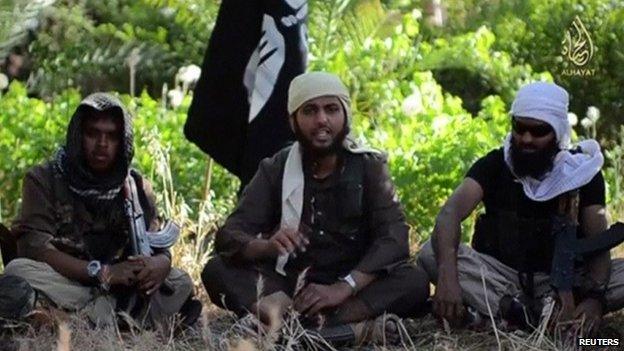
Reyaad Khan, Nasser Muthana and Abdul Rakib Amin appear in the video
Earlier this week, he told the BBC he was "heartbroken" by the video featuring his son, while the family of Mr Khan said he had been "brainwashed" into supporting violent extremism.
Nasser Muthana's younger brother, Aseel, 17, has also joined the jihadists abroad.
Ms Holland, who has only been in post a couple of weeks, said she did not think Cardiff had any greater problem than anywhere else in the UK.
Monmouth MP David Davies said: "We cannot blame the police for this. By the time these people are radicalised it is too late. We now need to ask why these people are radicalised."
Cardiff politicians and religious leaders in the city also issued a joint statement underlining their commitment to work together to fight extremism.
The cross-party, cross-denominational statement said the group was committed to "redouble our efforts to act together to tackle those who seek to exploit and mislead our young people, and expose them to the siren words of manipulative extremists".
Meanwhile, an Islamic extremist group based in Wales is one of three groups to be banned by the Home Office.
The UK government suspects the Islamic Dawah Association is a front for the banned extremist group Al Muhajiroun.
The Home Office describes it as a "terrorist organisation" which cannot be allowed to continue by using a different name.
The other groups banned are Need4Khilafah and The Shariah Project.
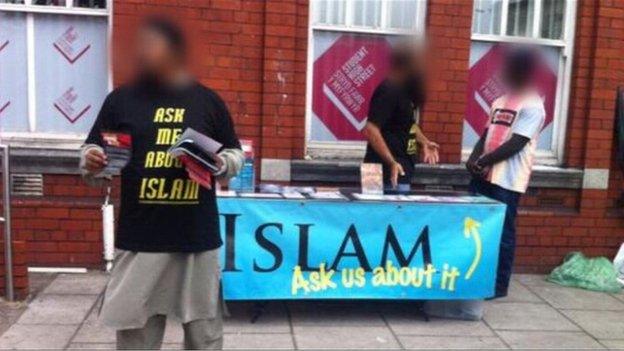
A man speaking outside Cardiff University in March in video published by the now banned extremist group Islamic Dawah Association
- Published27 June 2014
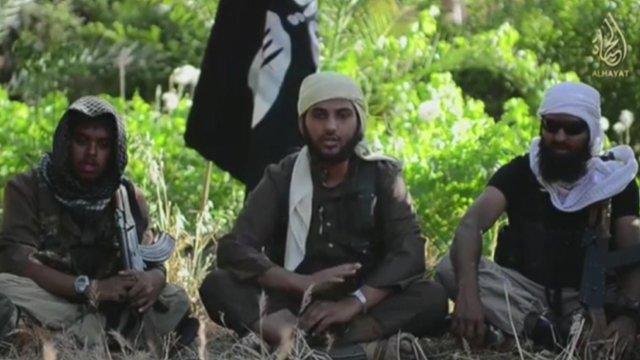
- Published27 June 2014
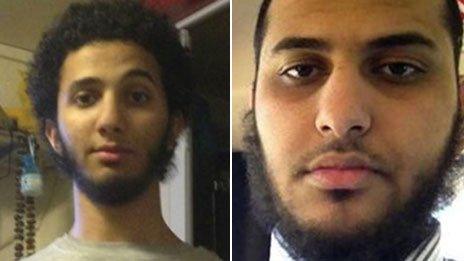
- Published27 June 2014
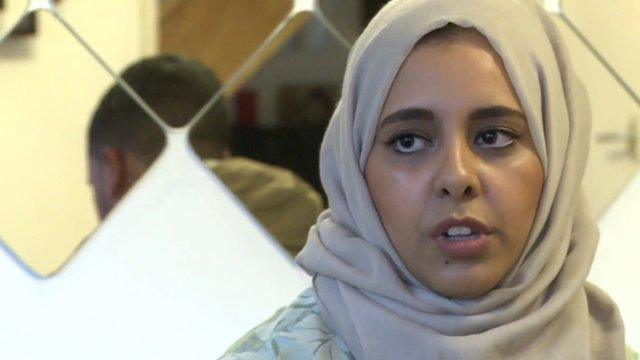
- Published27 June 2014
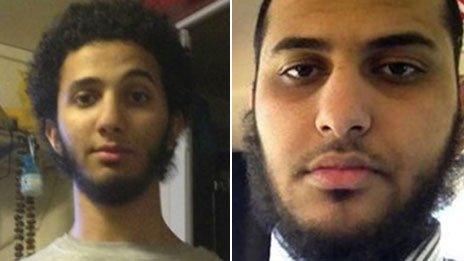
- Published27 June 2014
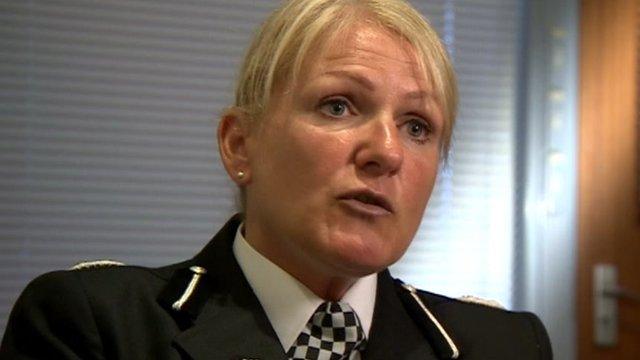
- Published23 June 2014

- Published23 June 2014

- Published23 June 2014
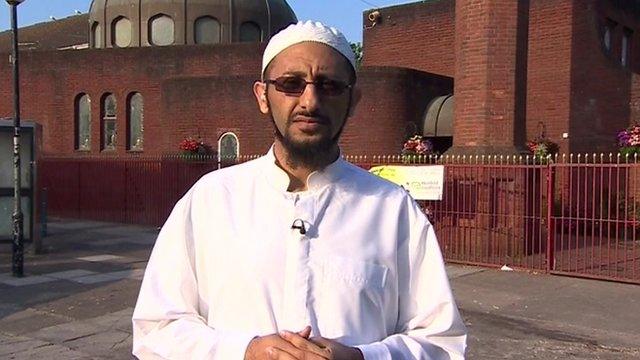
- Published23 June 2014
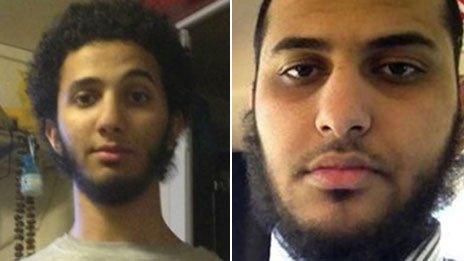
- Published23 June 2014
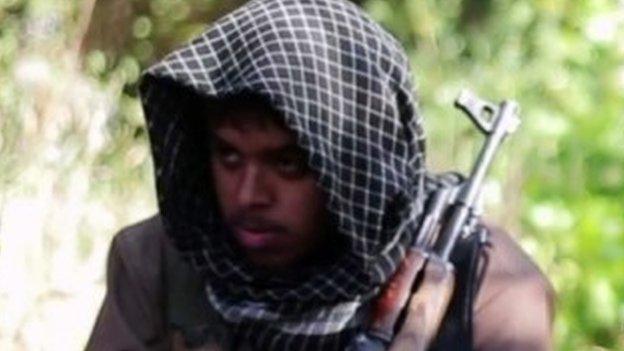
- Published21 June 2014
